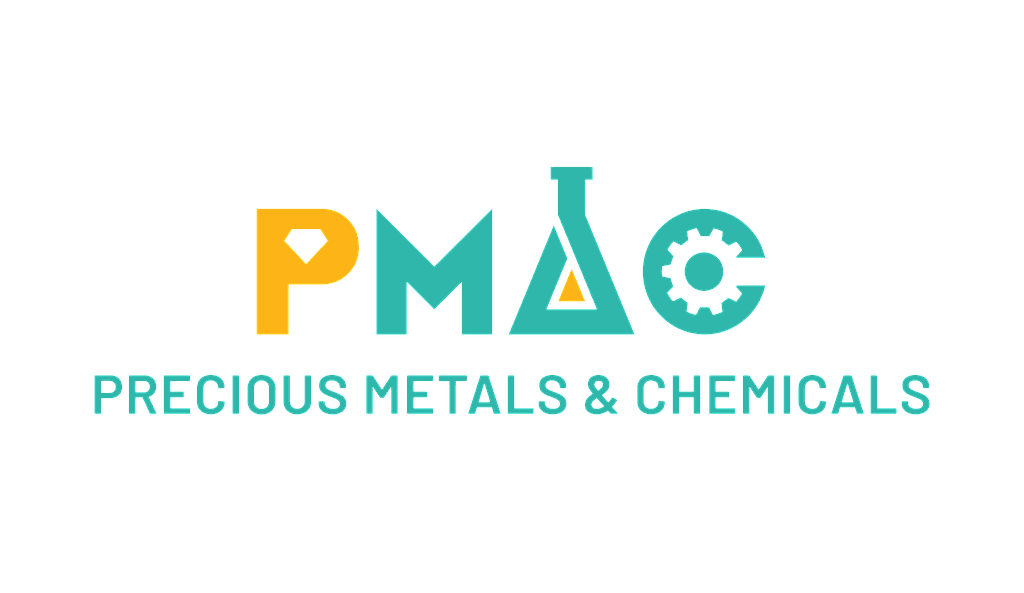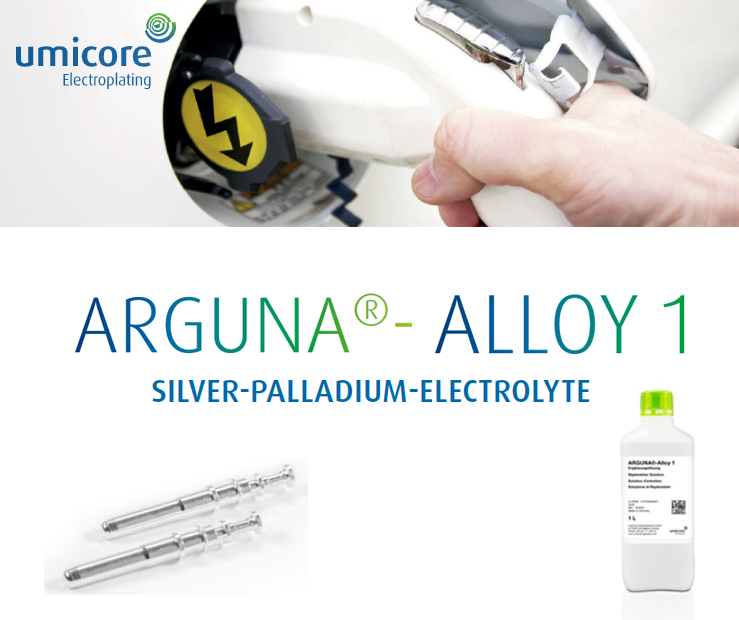ARGUNA®-Alloy 1 Silver-Palladium-Electrolyte
This combination does not exist.
ARGUNA®-Alloy 1 for demanding requirements
This silver-palladium alloy is designed for use at high temperatures. Combining with the maintenance of a lower coefficient of friction and a high degree of hardness, the alloy is ideally suited for applications in the field of electrical contact surfaces and connectors.
This coating system demonstrates its strengths particularly when, for example in the electromobility sector, increased demands are placed on silver coatings. In comparison to established hard gold coatings, the silver-palladium alloy also offers significant potential for saving precious metals.
The silver-palladium alloy electrolyte, which can be integrated into a conventional electroplating process, is free of cyanide complexes and guarantees maximum performance and a long service life.
Advantages
- Hard and wear-resistant coatings
- Very good electrical properties
- Semi-bright coatings
- For continuous lines with flow or spraying technology
Applications
- Electrical contact surfaces
- Connectors
ARGUNA®-Alloy 1 for demanding requirements
This silver-palladium alloy is designed for use at high temperatures. Combining with the maintenance of a lower coefficient of friction and a high degree of hardness, the alloy is ideally suited for applications in the field of electrical contact surfaces and connectors.
This coating system demonstrates its strengths particularly when, for example in the electromobility sector, increased demands are placed on silver coatings. In comparison to established hard gold coatings, the silver-palladium alloy also offers significant potential for saving precious metals.
The silver-palladium alloy electrolyte, which can be integrated into a conventional electroplating process, is free of cyanide complexes and guarantees maximum performance and a long service life.
Advantages
- Hard and wear-resistant coatings
- Very good electrical properties
- Semi-bright coatings
- For continuous lines with flow or spraying technology
Applications
- Electrical contact surfaces
- Connectors

Umicore is a global materials technology and recycling group, with about 10,000 employees and a turnover of € 10.4 billion in 2015. Umicore generates the majority of its revenues and dedicates most of its R&D efforts to clean technologies, such as emission control catalysts, materials for rechargeable batteries and recycling. Umicore’s overriding goal of sustainable value creation is based on an ambition to develop, produce and recycle materials in a way that fulfils its mission: materials for a better life.











